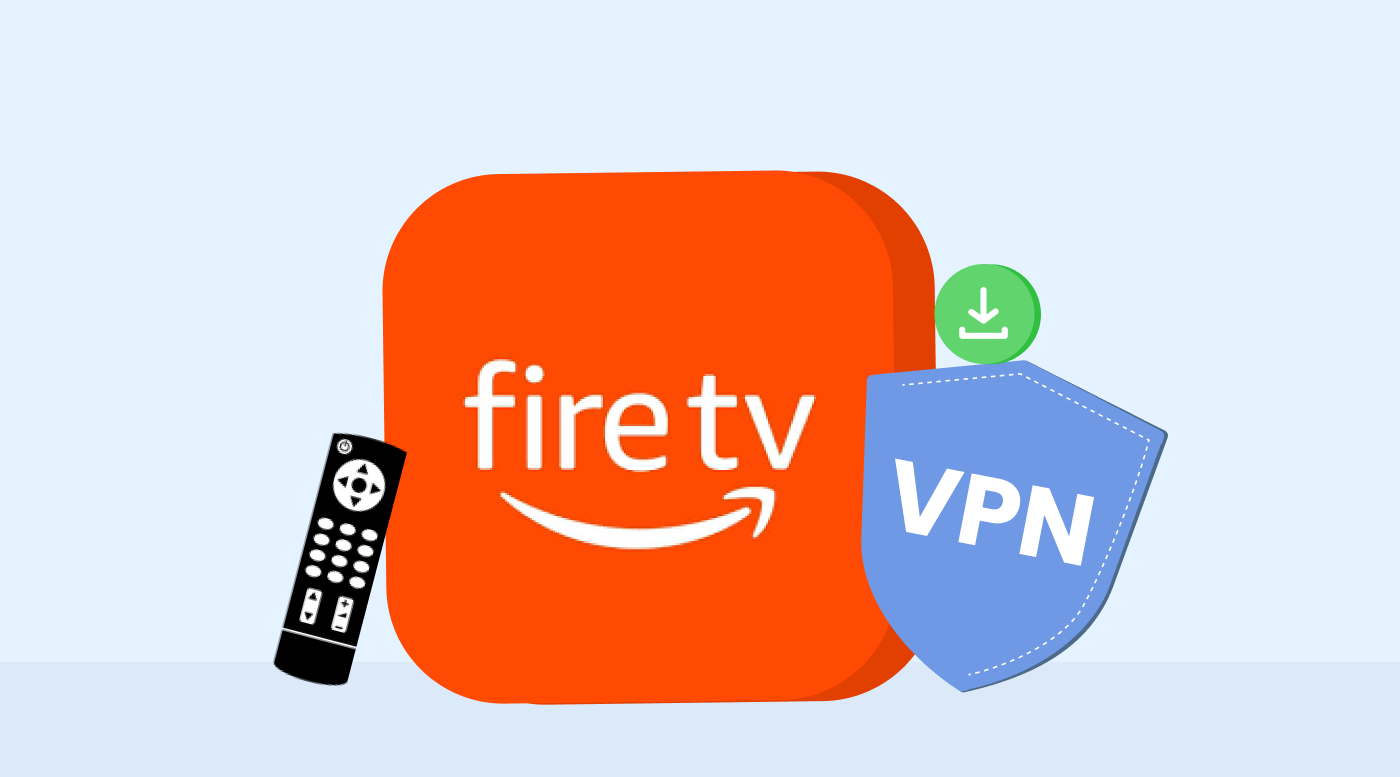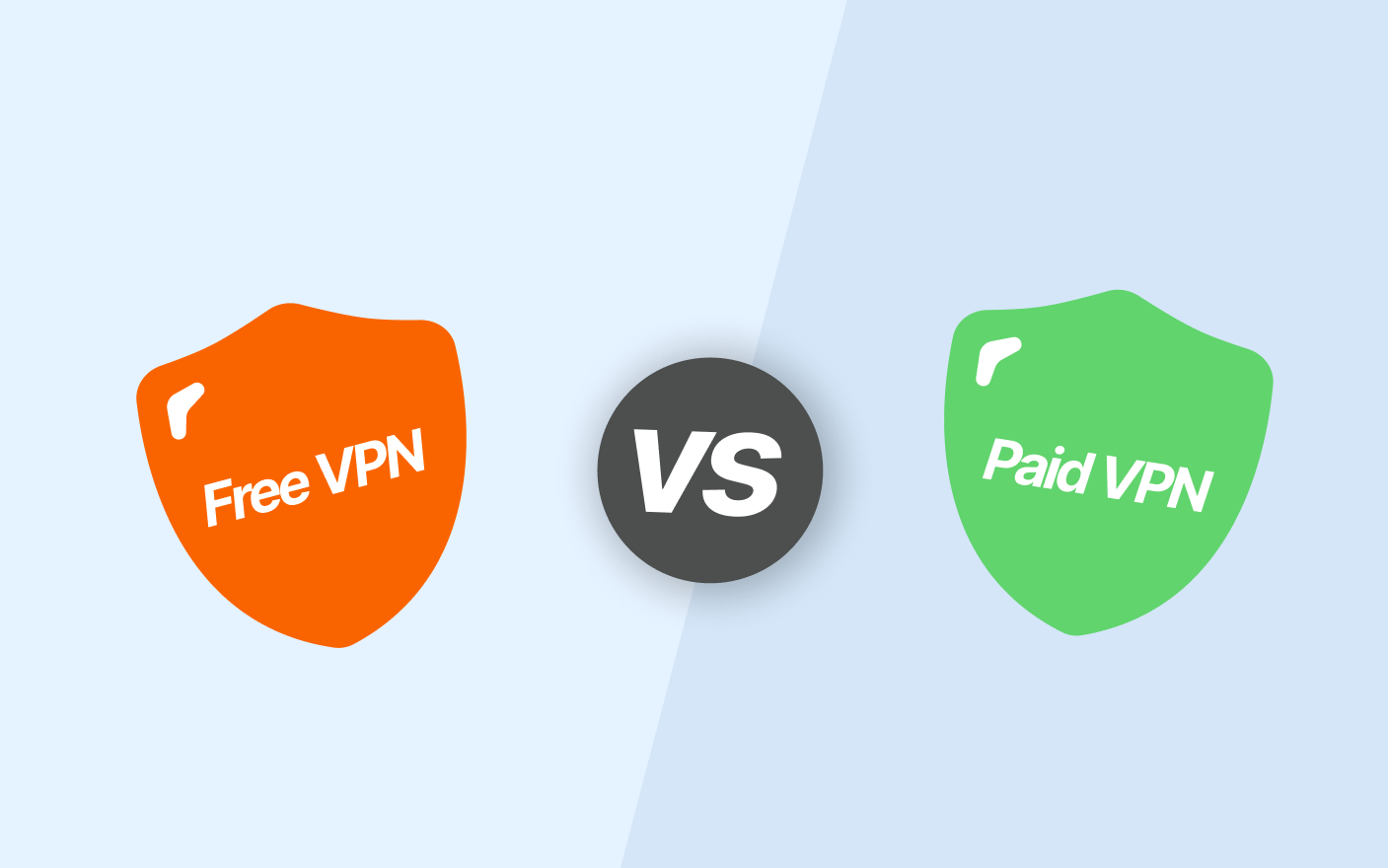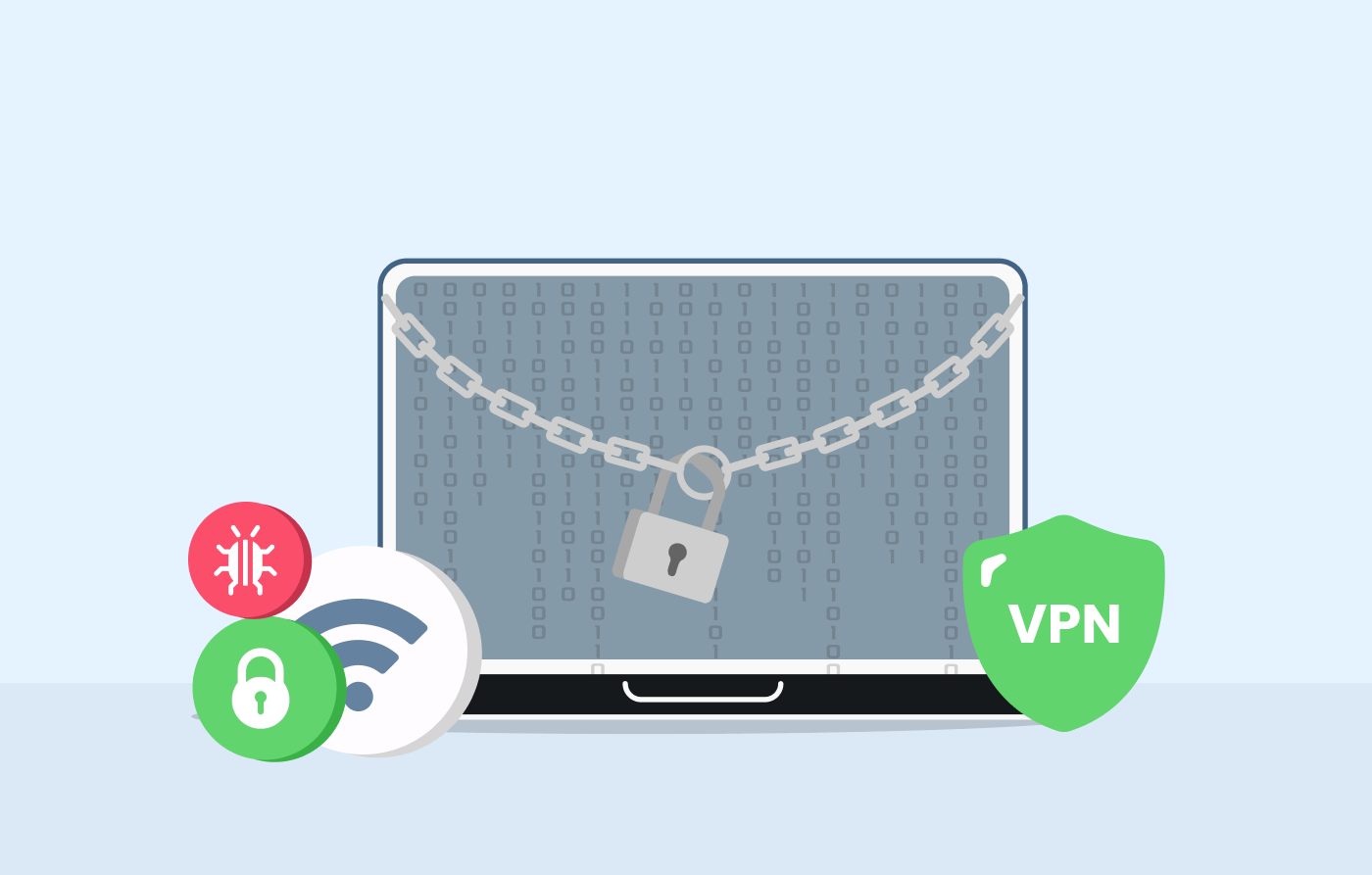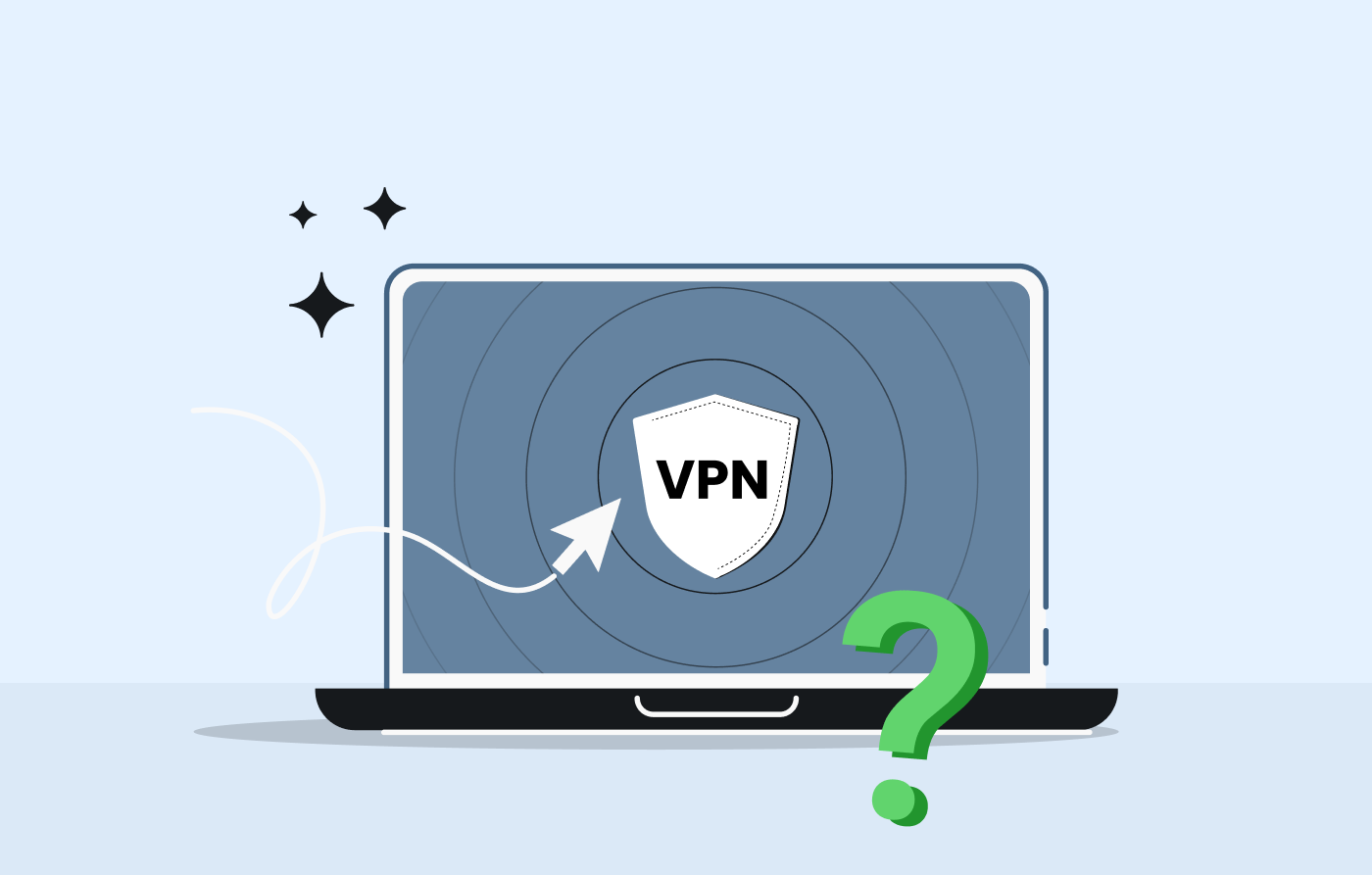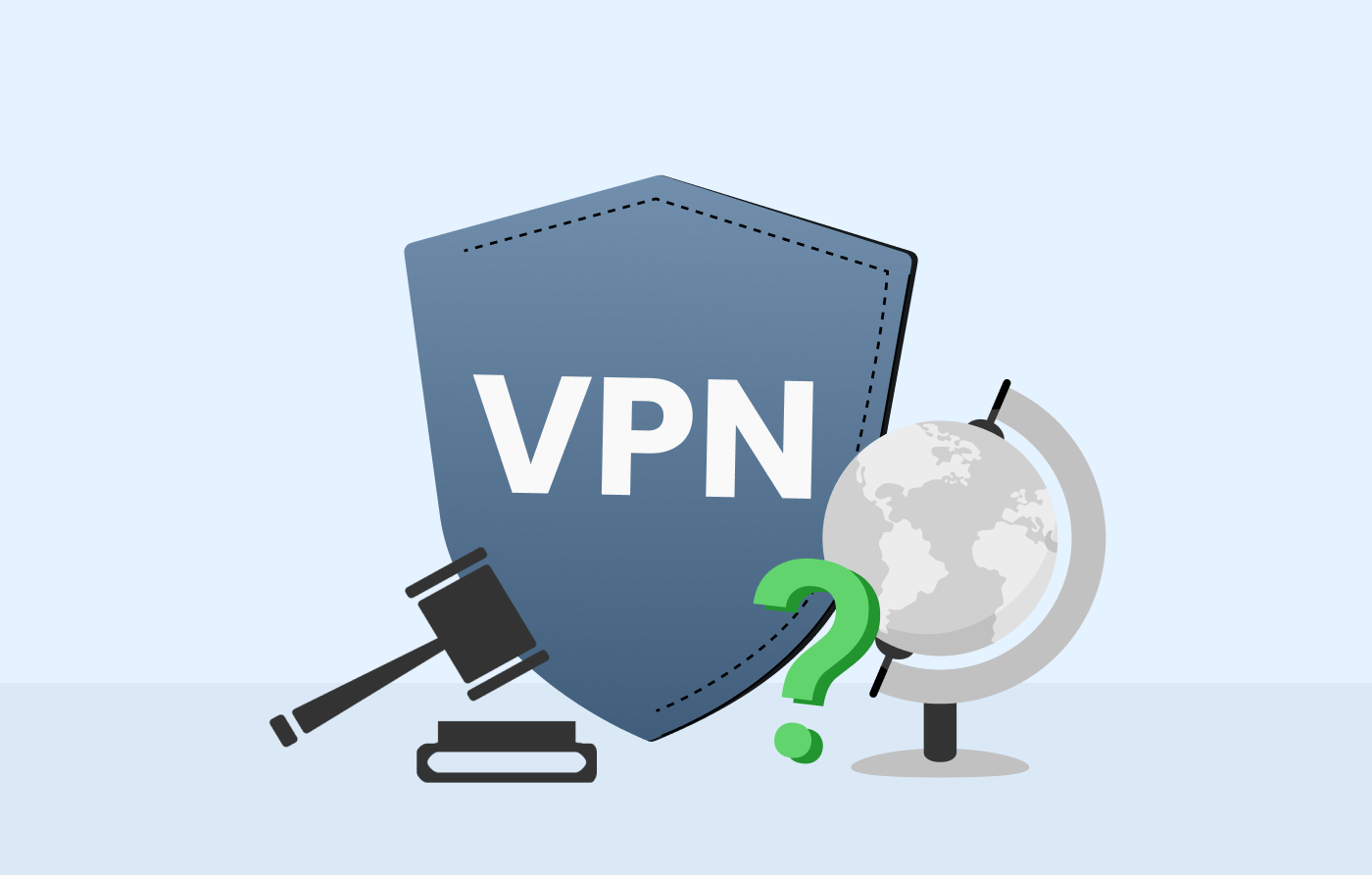-
VPN protocols encrypt your internet connection by establishing a secure tunnel between your device and a VPN server, allowing you to hide your online identity.
-
OpenVPN offers strong security and versatility, while WireGuard prioritizes speed without compromising privacy.
-
Security, speed, compatibility, and ease of use are important factors to consider before choosing a VPN protocol.

Have you ever wondered about VPN protocols? They work in the background with a Virtual Private Network (VPN) to ensure a secure and encrypted internet connection. They help you achieve the desired outcome from your VPN connection, such as faster VPN speeds or stronger encryption.
However, protocols have different levels of security, speed, and compatibility. For this reason, you must understand how they work, their benefits, and their drawbacks before making a choice. Fortunately, our guide outlines the most reliable VPN protocols so you can pick one for your VPN service.
VPN Protocols: Quick list
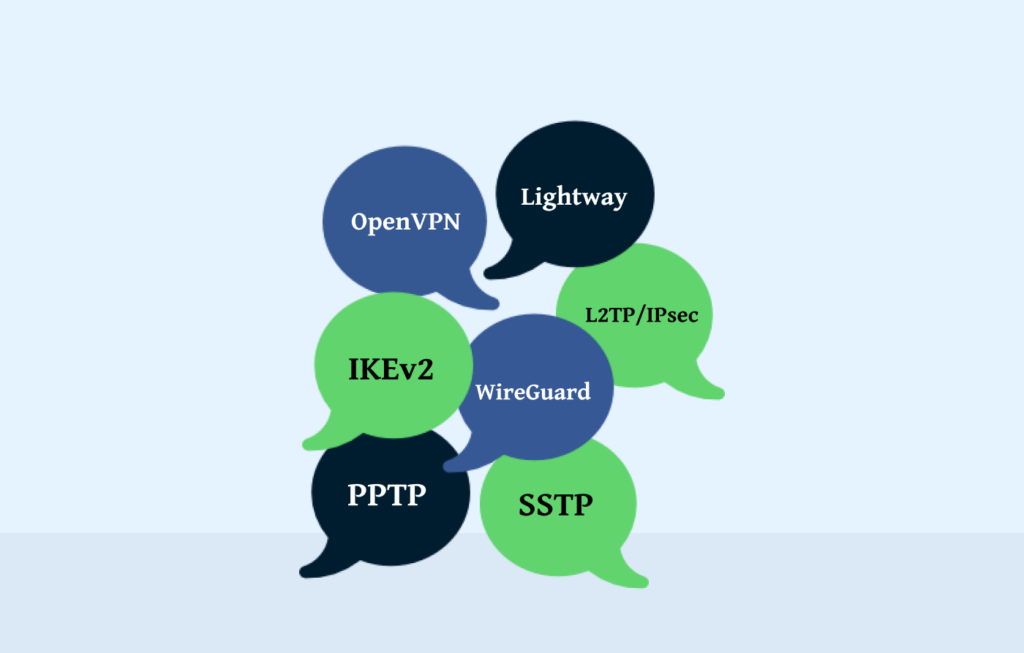
- OpenVPN: A popular and versatile VPN protocol that can be used with various encryption and traffic protocols.
- IKEv2/IPsec: This protocol balances security and speed, allowing users to bypass firewalls and maintain a secure connection.
- SSTP: Fairly secure protocol, but available on other systems besides Windows.
- WireGuard: New and fast tunneling protocol, currently trending among VPN services.
- L2TP/IPsec: Secure tool that accepts many encryption protocols.
- PPTP: The first widely available VPN protocol developed to tunnel dial-up traffic.
What is a VPN protocol?
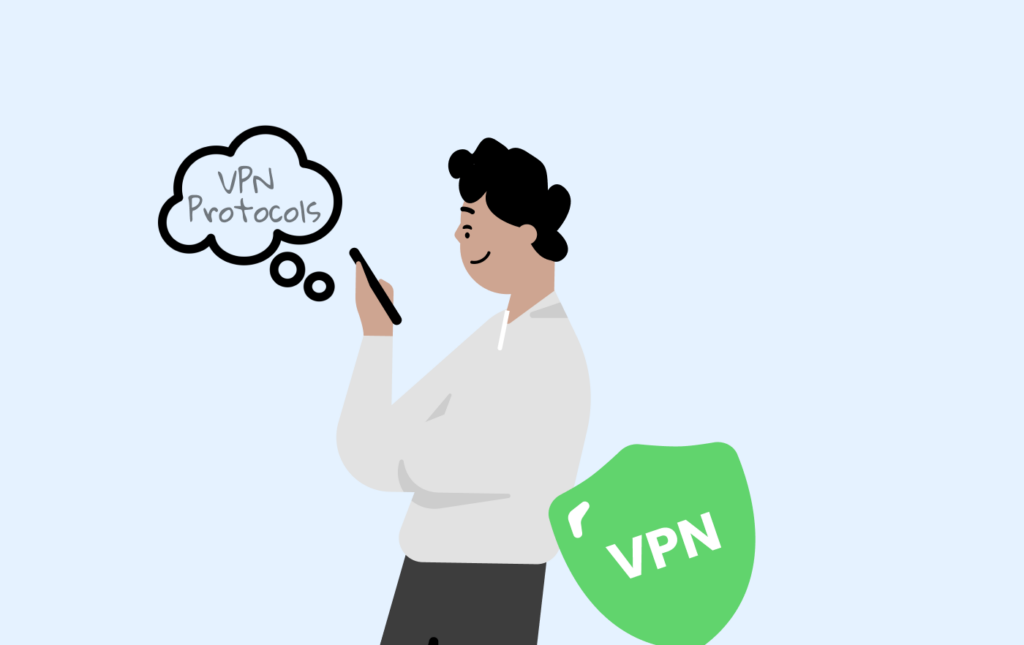
It is a set of guidelines that govern how information is transmitted between a device and a VPN server. When you transfer data between servers, the VPN protocol chooses how the data is encrypted, authenticated, and encapsulated. Encrypting your information protects your online activities from potential threats like hackers, government spying, and data breaches.
VPN services can provide a secure and stable internet connection using a reliable protocol. While some prioritize security and encryption, others concentrate on faster bandwidth for online gaming and streaming platforms. Choosing a VPN protocol often depends on your preferences, but remember, there is no perfect one.
How do VPN protocols work?
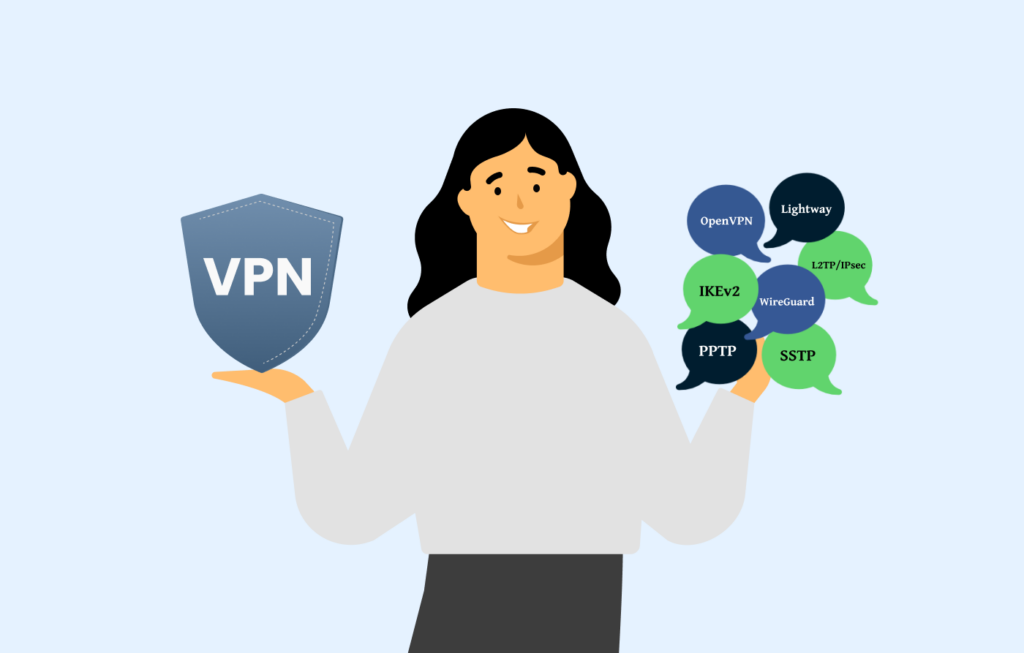
VPN protocols play a vital role in creating a safe, encrypted connection between a VPN server and your device. They facilitate encryption and authentication.
VPN protocols also function in these areas:
- Establishing a secure tunnel: Once encrypted, your data is secure and will be placed in a secure tunnel, a virtual path that binds your device to the VPN server.
- Encryption: Once an established connection with a VPN server is established, a protocol starts working. It uses strong encryption procedures such as Transport Layer Security (TLS) and Secure Sockets Layer (SSL) to prevent unauthorized third parties from reading or accessing your data.
- Authentication: Through authentication procedures, VPN protocols ensure your device is linked to an accredited and trustworthy VPN server.
- Bidirectional communication: The VPN protocol enables secure data transfer between your device and the VPN server, whether you’re uploading files or browsing the internet.
- Data routing and remote access: The VPN server acts as a middleman, hiding your IP address and directing your data to its intended destination.
A quick comparison of VPN protocols
| VPN Protocol | Encryption | Speed | Stability | Streaming | P2P |
|---|---|---|---|---|---|
| OpenVPN | Very good | Fast | Good | Good | Good |
| IKEv2/IPsec | Very good | Fast | Very good | Good | Good |
| SSTP | Good | Medium | Medium | Medium | Good |
| WireGuard | Very good | Very fast | Very good | Good | Good |
| PPTP | Poor | Fast | Good | Poor | Poor |
| L2TP/IPsec | Medium | Medium | Good | Poor | Poor |
Widely used VPN protocols: Our detailed list
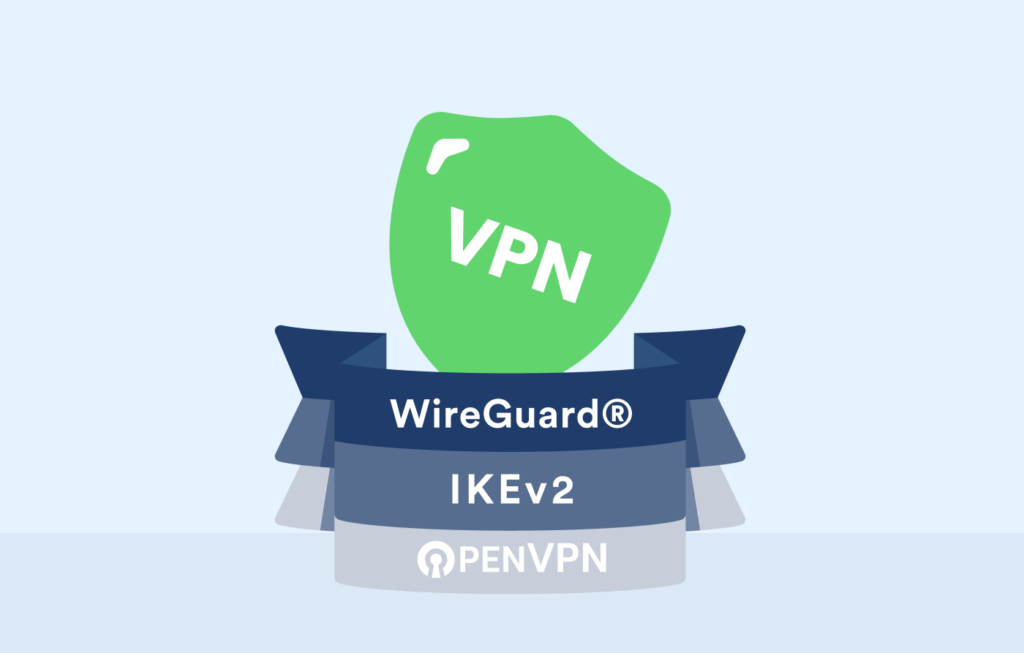
Each VPN protocol has its own security, speed, and compatibility benefits and drawbacks. Consequently, users and organizations choose a protocol based on their specific requirements.
Here’s a list of common VPN protocols based on our research and tests, their pros, cons, and features to help you decide which is best for your VPN.
OpenVPN
Many VPN companies use this highly secure protocol. OpenVPN runs on the UDP (user datagram protocol) or TCP (transmission control protocol) internet protocol. While UDP emphasizes quicker speeds, TCP ensures that your data is delivered in an organized manner.
To safeguard your data, this protocol uses Secure Sockets Layer (SSL)/ Transport Layer Security (TLS) encryption and end-to-end AES 256-bit encryption. It also features intrusion detection and intrusion prevention technologies in case the VPN loses connection.
OpenVPN is a great choice if you want stable and secure connections, particularly when your network is unprotected or exposed to public Wi-Fi. One of this protocol’s major drawbacks is its wide range of options, where users may find it complex when setting up their own OpenVPN servers.
Pros
- The open-source protocol allows anyone to check for hidden loopholes or weaknesses that could jeopardize your VPN’s security.
- Compatible with extra features that improve security.
- OpenVPN can be configured for various uses and used with traffic and encryption protocols.
- Allows users to bypass most firewalls.
Cons
- The setup is quite complex.
IKEv2/IPsec
IKEv2/IPsec was formed from a collaboration between Microsoft and Cisco Systems, and the reason for its creation is efficient, secure, fast, and stable. One of IKEv2’s remarkable features is its ability to restore connections during brief interruptions swiftly. IKEv2 is a component of the IPsec internet security toolkit, and it works with other IPsec technologies to offer complete VPN coverage.
This protocol enables smooth and seamless transitions between several network interfaces such as Wi-Fi and cellular, as well as the in and out of sleep modes for devices. It is therefore appropriate for mobile devices that switch networks frequently.
IKEv2/IPsec configuration is more demanding than other VPN protocols. The setup process may be overwhelming for inexperienced VPN users and requires extensive knowledge of networking basics.
Pros
- Stable protocol for mobile devices.
- Fast connections and communication.
- Secure VPN protocol.
- Bypasses firewalls.
Cons
- Configuration may be too complex for beginners.
SSTP
Secure socket tunneling protocol (SSTP), created by Microsoft for fully integrated Windows devices, transmits data to a distant VPN server via an SSL 3.0 tunnel. Setting up this protocol is not too difficult, especially on Windows-powered devices. Additionally, Windows SSTP integration instructions are available from a large number of VPN providers. This implies that users don’t require additional software to establish SSTP connections.
This VPN protocol implements industry-standard 2048-bit SSL/TLS authentication and 256-bit SSL encryption keys to protect and secure your data. Consequently, data theft by unauthorized parties is difficult, ensuring that VPN users’ data is secure and intact. With this protocol, you’re guaranteed privacy when using the internet.
Pros
- Supports the AES-256 encryption protocol for security.
- Bypass firewalls without interrupting communication.
Cons
- The code is not available for testing.
WireGuard
Wireguard was introduced in 2015 and its reputation quickly grew as the next big VPN protocol that provides speed and security. This software is one of the market leaders in the VPN protocol with the latest and quickest VPN tunneling. It also employs cutting-edge cryptography that surpasses IKEv2/IPsec and OpenVPN.
The concept and implementation of WireGuard are intended to be straightforward. It is easy to install and manage and also supports a range of encryption schemes. In addition, because of its speed, it is very useful for streaming, downloading large files, and online gaming. While WireGuard is currently trending, it still has some room for improvement.
Pros
- Open source protocol that allows people access to it.
- Extremely fast and modern.
Cons
- Still experimental, with room for it to be improved.
L2TP/IPsec
Layer 2 Tunneling Protocol (L2TP) and internet protocol security (IPsec) are merged to form the virtual private network (VPN) protocol referred to as L2TP/IPsec. This protocol doesn’t offer any authentication or encryption. It only creates the connection that links you and your VPN server. L2TP/IPsec is especially useful when connecting multiple company branches into one network.
Additionally, it encrypts your traffic to ensure privacy and safety by relying on other technologies in the IPsec suite. However, a few drawbacks hinder this VPN protocol from being top on the list. For instance, L2TP/IPsec lacks clever approaches for bypassing firewalls.
Pros
- Available on nearly all modern systems.
- Accepts several security protocols.
Cons
- Slower than other protocols.
- Has difficulties with bypassing firewalls.
PPTP
It was one of the first VPN protocols created by Microsoft in 1999. PPTP (Point-to-Point Tunneling Protocol) was the first publicly accessible VPN protocol to tunnel dial-up traffic. It uses an outdated MS-CHAP v2 protocol that lacks encryption or authentication features.
It leaves its users vulnerable and exposed to several security risk factors, such as being able to be decrypted by the National Security Agency (NSA). Modern computers run PPTP very effectively since it doesn’t require a lot of resources to execute. While this protocol is quick, its weak encryption provides little security.
Pros
- Compatible with almost every device and modern system.
- Runs very fast.
Cons
- Has weak encryption.
- Often blocked by firewalls.
Why are VPN protocols important?
VPN protocols are important because they determine how data passes between your device and a VPN server. These methods ensure that your online actions are transmitted safely and anonymously, shielding your information from cyber threats or third parties. As such, VPN protocols form the basis of a secure and reliable VPN connection.
What VPN protocol is the best?
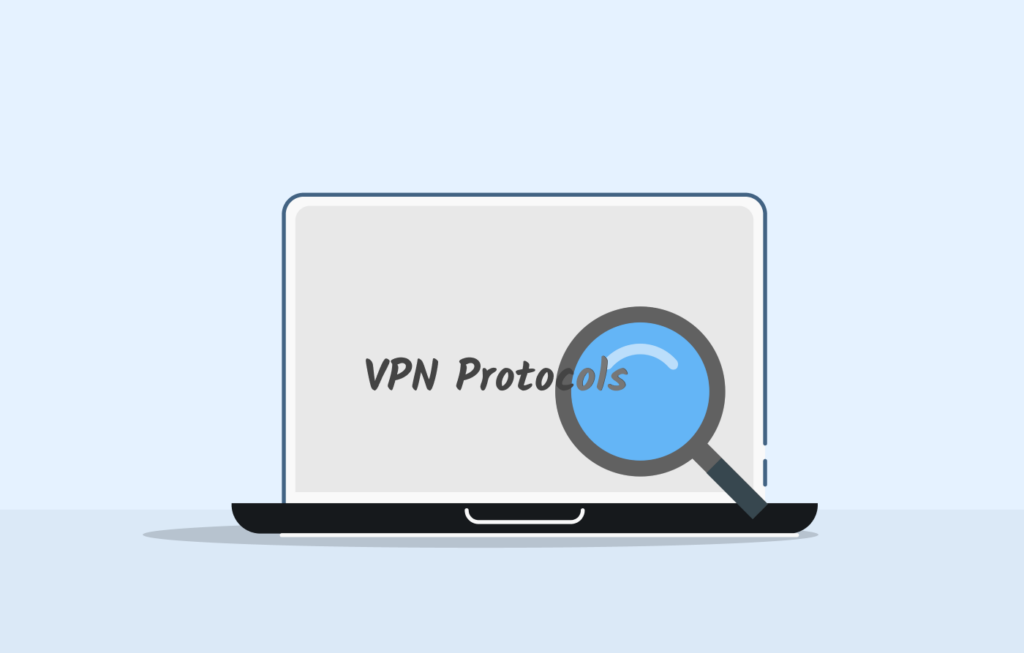
Choosing a VPN protocol depends on what you or the VPN company prefers and prioritizes. Remember that no VPN protocol is perfect; they have various pros and cons. So consider these factors before choosing a protocol that suits your preferences.
What is the most secure VPN protocol?
OpenVPN uses an AES 256-bit encryption key, and WireGuard uses XChaCha20, a very modern and strong encryption system. Therefore, both protocols guarantee the utmost level of security. Top-tier bodies like the military and the National Aeronautics and Space Administration (NASA) implement them.
However, WireGuard’s XChaCha20 surpasses AES 256-bit encryption in speed and operates without requiring specialized hardware. For these reasons, it is more popular in the cyber world.
What is the most stable VPN protocol on mobile networks?
KEv2/IPsec enables users to switch networks without interrupting their security. This protocol also ensures strong connections across mobile devices, making it the most reliable VPN protocol for mobile devices.
What VPN protocol is fast and has the best performance?
At the moment, the fastest and most efficient VPN protocol is WireGuard. It offers better battery health for mobile devices and faster connectivity time than its competitors. Another quick protocol that is efficient is IKEv2/IPsec, which is particularly good at fixing lost or broken VPN connections.
What is the most compatible VPN protocol?
OpenVPN is flexible and compatible with almost every platform, including desktop and mobile devices. Although IKEv2 is commonly supported on mobile platforms, SSTP is an attractive option if you use a Windows device because it is natively supported.
Wire guard is also known for its simple setup, modern design and cross platform compatibility. These elements contribute to its reputation for being easy to set up and use.
What VPN protocol is best for bypassing firewalls and restrictions?
SSTP proves highly effective in evading firewalls and other network restrictions because it uses port 443, which is usually accessible to most networks. At the same time, OpenVPN rivals SSTP by being able to operate on port 443.
Can I switch between different VPN protocols?

Yes, you can switch between different VPN protocols because many VPN services offer this option. However, since these protocols come with unique features, they may impact your VPN connection.
Before switching protocols, it’s essential to consider your specific needs. For example, if security is your top priority, you might opt for OpenVPN, known for its strong encryption. On the other hand, if you’re looking for faster speeds, you might choose a protocol like IKEv2/IPsec.
Most VPN providers allow you to select your preferred protocol from within their app or settings menu. If you are unsure which protocol to use, VPN providers offer recommendations based on the activities you will use the VPN.
Which VPN protocols do free VPNs use?

Most free VPN services use OpenVPN because it is widely available, efficient, and reliable. Consequently, you’ll find this protocol in free VPN services like PrivadoVPN, Windscribe, and hide.me. It supports various authentication methods, including pre-shared keys, usernames/passwords, and certificates, amplifying overall security.
Additionally, it provides stable and consistent connections with features like auto-reconnect, which ensures continuous service even if the connection is interrupted. Users and administrators can also configure OpenVPN to meet specific requirements, tailoring its features and performance to match their needs.
Furthermore, OpenVPN supports multiple platforms and devices, including Windows, macOS, Linux, iOS, and Android. While free VPN services are limited in functionality, OpenVPN allows them to deliver dependable, safe, and flexible services to their users. Other common VPN protocols for free VPNs include IKEv2/IPsec and WireGuard.
FAQs
VPN protocols matter because their rules control how your internet data is encrypted, transported, and protected. Choosing the right one directly impacts your online experience, influencing elements like security, speed, and compatibility with various devices and online activities.
Wireguard, released in 2015, is the latest VPN protocol on the market. It is fast, efficient, and simple, with solid security features. In addition, it is already widely used.
VPN protocols differ in various ways, including their security features, speed, use cases, and compatibility. The best option often depends on your specific requirements.
Yes, the VPN protocol you choose can affect speed. WireGuard, for example, offers a quicker browsing experience than other VPN protocols. Different protocols differ in their effectiveness and speed. Therefore, the protocol you choose determines the speed and functionality of your VPN connection.

